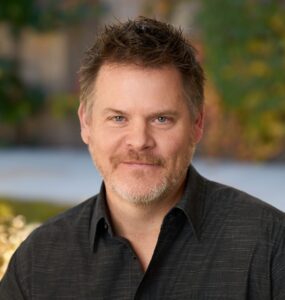I work almost exclusively these days as a couples therapist in Pasadena, CA. I love this work! It’s powerful, effective, sacred and fun! And over my 25 years helping folks live the lives they deserve and develop the relationships they want, I have developed a short list of things I wish every couple knew before starting couples therapy.
My priority is not the survival of your relationship.
There is a myth out there that every couples therapist is in the business of saving relationships. And to be fair, many are. But most experienced relationship therapists understand that our end game is mutual happiness, and sometimes that doesn’t mean staying together. I will never tell a couple they should or should not be together, that’s none of my business. But I will work hard to help you make such a decision. (click here for 3 signs it’s time to start couples therapy)
Sometimes it gets worse before it gets better.
As we begin to work, you will become radically honest, about yourself, your feelings about your partner, and your hope or lack thereof about your relationship. The walls and defensives start to diminish, and sometimes that can feel overwhelming. It’s not uncommon that things might initially feel hard. You might have more anxiety or depression, you guys might fight a bit more often, or more intensely. It’s important to remember that this is temporary, and often necessary. It’s like holding your breath for a very long time. The first few gasps for air are intense, but very quickly you begin to breath easier.
Don’t wait until the relationship is on the brink before getting help.
If there is one thing I wish all couples did it would be to come into therapy when things are going great! Sounds counterintuitive I know. But think of it as preventive care, like going to the dentist. We don’t just go when our tooth aches. We go every six months, to prevent the worst. The human relationship is so much more complicated than your teeth! Doesn’t it at least deserve the same level of care? (click here for some tips about how to talk to your partner about couples therapy)
Quit blaming and start owning!
We work on this all the time in my office. “You never do this!” “You never do that!” It’s human nature to want external things to change so that we feel better. It seems like a quick fix for my partner to put the cap back on the freaking toothpaste occasionally! I know I would feel better if only she did that. But it simply isn’t true. One of the Buddhist Lojong slogans is drive all blames into one. This means that when I am irritated, complaining, and judgmental about something external to me, I should take that as an opportunity to look within. Whatever it is that rubs us the wrong way usually starts inside of us. It’s a big pill to swallow I know. But if you start with yourself when you want to attack, you’ll find the answer and get back to the business of loving each other much more quickly.
You’re really coming to learn how to be your partner’s “whisperer.”
It starts off the same way each time. Each partner tries in subtle, and not so subtle, ways to convince the couples therapist that the other person is the problem. I let it roll for a bit. It’s important to drain that energy. But then, I drop the bombshell. “You shouldn’t expect them to change. They are who they are. You’ll be much happier if you try to make them make sense to you.” Jaws drop. Clients don’t usually like this piece. But it’s really true. Your partner, deep inside, is the same person they were when you decided to get together with them. Instead of needing or expecting them to change, you could instead become an expert on the way they tick.
Stop using the “D” word.
Do you ever say something like, “I can’t do this anymore!” “Well then maybe you should just go find somebody else!” “You’re not the person I married!” These are all ways that we use abandonment as a tool to get our partners to conform to our wishes and to understand the intensity of our upset. And it is one of the most devastating things we can do to each other. In session we spend a great deal of time repairing the damage caused by these threats. Don’t get me wrong, there is a big difference between threatening divorce or the end of a relationship in the throws of anger, and calmly discussing the possibility that we might both be better off going our separate ways. We talk about ending the relationship all the time, but we only do so with the upmost care, warmth and love. The alternative is highly abusive.
It’s more intense, of shorter duration, and often cheaper than individual therapy.
It’s true! Because there are two of you, and because almost all of our issues stem from relationship, doing couples work is much more effective and economical than individual therapy. Often I hear couples therapists recommend one or both partners get individual therapy. This usually is a sign the couples therapist is in a bit over their heads. Of course, when working with things like addiction, autism, brain injury and such, yes, having one or both partners work on that material outside the couples work can be helpful. But that is rare. Everything, and I mean everything you can do in individual, you can do better in couples!
It’s not as hard as you might think.
Yes, couples therapy is intense, often much more intense than individual therapy. Working on issues of intimacy, sexuality, and communication can be extremely difficult. But! But! The intense moments are not as bad as you think. It’s like jumping off a high dive. It can be scary, but only for a moment, and once you jump, the waters are warm! (Enough with the metaphors Chris) I find that humor and play are so important in this work. We take ourselves and our relationships so seriously. Too seriously. One of the things I pride myself on is making this process enjoyable, fun, relaxing and potent. So, make some eye contact with your partner, and say to each other “we can do this!”










